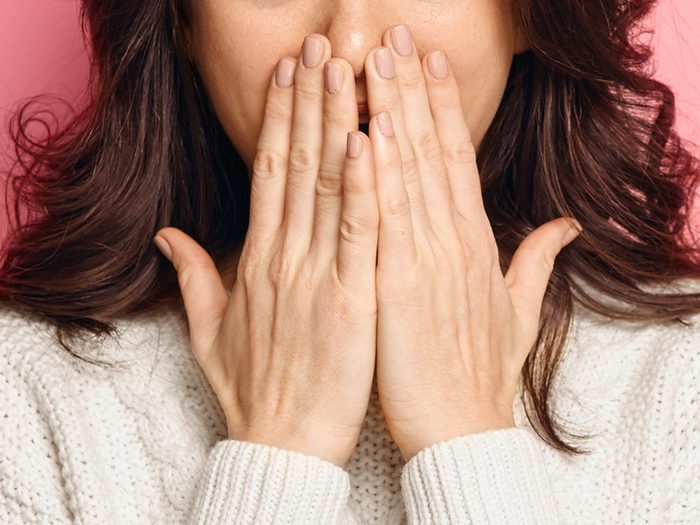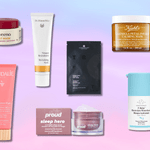What Is the Difference Between a Cold Sore and a Fever Blister?

If you tend to develop cold sores or fever blisters on your lip, you are not alone.
Is it a cold sore or a fever blister?
You have a tiny, clear, and fluid-filled blister or group of blisters that might itch, tingle, or burn on your lip. Is it a cold sore or fever blister? Technically, it’s both.
A fever blister is just the nickname for a cold sore. They are a symptom of an infection caused by herpes simplex virus HSV-1. That’s why those lip blisters are also called oral herpes. (A cold sore or fever blister can look like an ordinary pimple, but they are not the same thing and have different causes and treatments.) There is no cure for the virus, and once you are infected, you have it for life. But prevention can minimize the number of outbreaks, and certain anti-viral medications can shorten the duration of those cold sores when they do occur.
What is the cold sore virus?
Cold sores on the lips, face, and sometimes the genital area are caused by infection with HSV-1. By contrast, HSV-2 causes cold sores on the genitals. Other types of herpes viruses are also responsible for shingles and chicken pox, explains Edidiong Kaminska, a dermatologist and medical director of Kaminska Dermatology in Chicago.
The virus is usually transmitted by mouth-to-mouth contact and can strike people of all ages—even babies. Once you are infected, the virus stays in the body, hiding out in nerve cells. The dormant virus can reawaken (see what triggers the virus below), causing painful blisters and cold sores once again. Your first cold sore virus outbreak is usually the worst, Dr. Kaminska explains. “It can be associated with fever, swollen lymph nodes, and just not feeling well,” she says. (And this is likely where the term fever blister first came from, she notes.)
HSV-1 is particularly dangerous for newborns, and can even cause potentially life-threatening infections. Don’t kiss babies, or pick up or touch a baby if you are sick; make sure to wash your hands even if you are feeling well. Even touching a baby’s hand could be risky since they often put their hands in their mouth, which could spread the virus.
Cold sore triggers
If you have the virus, cold sore triggers can include stress, sun, and illness. “Anything that can depress the immune system can allow for a recurrence,” explains Adam Friedman, MD, professor and interim chair of the department of dermatology at George Washington School of Medicine and Health Sciences in Washington, D.C. This includes anything from sun exposure to not getting enough sleep, eating poorly, and being sick.
“Using sunscreen on exposed areas every day, eating well, and getting enough sleep is very important,” he says. The American Academy of Dermatology (AAD) recommends using a lip balm with an SPF of 30 or higher and broad-spectrum to protect your lips. When used year-round, this may prevent new cold sores from developing.
(Related: Here’s how to tell the difference between bad stress and good stress.)
Are cold sores contagious?
Both types of HSV can be spread by kissing or touching. “The virus sheds more heavily when blisters or sores are present, and viral load decreases when it starts to crust,” Dr. Kaminska says.
Before a blister develops, most people experience a tingling or irritation in the area known as a prodrome, she says. You can pass on the virus even during this stage. “If you are tingling and kiss someone, you may still spread the virus.” It’s important to watch out for the warning signs of a cold sore on your lip and heed them, she cautions.
Treating active cold sores
A herpes outbreak will run its course and go away without treatment, says Dr. Friedman. “Treatment can sometimes prevent an outbreak if started early enough or it will shorten the course which can be two to three weeks if untreated,” he says.
Antiviral creams are typically the first line of defense when you develop a cold sore on your lip. “These creams may heal your cold sore quicker if you apply it at the first sign,” says Dr. Kaminska. For frequent outbreaks, your doctor may recommend a suppressive or maintenance dose of antiviral medications, such as acyclovir, valacyclovir, and famciclovir.
If the cold sore is painful, icing it can help as can non-prescription gels or ointment with benzocaine, lidocaine, dibucaine, or benzyl alcohol, and/or over-the-counter pain relievers, such as ibuprofen or acetaminophen. Keep in mind that citrus or spicy foods can also worsen pain, so try to avoid them when you have an active outbreak.
Even a skin condition like eczema is especially important to treat. Left untreated, the virus can cause a potentially life-threatening infection called eczema herpeticum, which occurs on the face and neck but can spread over wide areas of skin, according to the National Eczema Association. Other people who often need treatment include those with weakened immune systems due to an underlying condition or treatment regimen and those who develop cold sores around their eyes.
(Related: Simple habits to naturally boost your immune system.)
Cold sores vs. canker sores
To make a true diagnosis of the cold sore virus, your doctor needs to take a culture from the area and send it to the lab for analysis, says Dr. Friedman. “There are some clinical clues that could be very suggestive: A. tingling/burning prior to the eruption of the blister; B. the blisters are often depressed in the middle,” he explains.
People often confuse canker sores with cold sores on the lip, but they are not the same. For starters, canker sores are not caused by a virus. “They can be caused by a lack of vitamins or a minor injury,” Dr. Kaminska says. What’s more, canker sores don’t blister and are more likely to occur on wet inner surfaces of your mouth and lips, she adds. By contrast, cold sores tend to develop on your dry outer mouth.
Next: 9 telehealth services available to Canadians during the pandemic.




